Minerals for better fertility, less mastitis
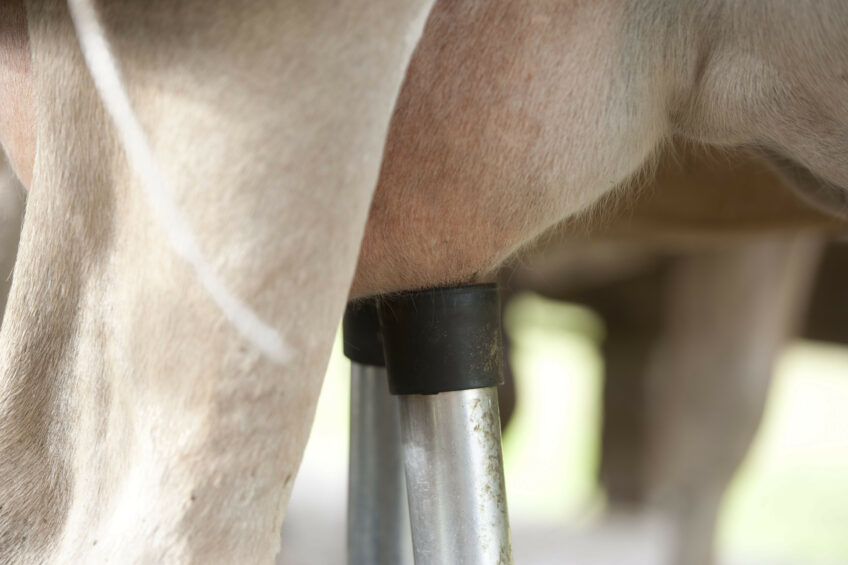
Financial losses associated with reduced reproductive performance and issues such as mastitis can be substantial. The use of organic trace minerals in the diet can help.
Genetic selection for high-yielding animals is often cited as the reason for the historic decline in fertility, and it has indeed played a significant role. However, management and nutrition also influence the likelihood of a successful pregnancy. The major challenges for fertility, in terms of nutritional goals, are minimising negative energy balance (NEB), controlling body condition score (BCS) and optimising mineral management. Trace minerals play key roles in many enzyme systems, protein synthesis, carbohydrate metabolism and antioxidant systems, as well as immune competency.

Mineral effects on fertility
Copper influences early embryonic survival via enzyme function and transport proteins. Impaired fertility has been seen in animals following dietary supplementation of copper antagonists, such as molybdenum. Molybdenum reacts with sulphur in the rumen to form thiomolybdates, which in turn bind copper with high affinity (Dick et al., 1975). Kendall et al. (2006) noted that these thiomolybdates disturbed ovarian hormone production in vitro and that adding copper ameliorated this disturbance.
From a practical perspective, a large proportion of copper-responsive deficiencies are due to the formation of these thiomolybdates rather than true copper deficiency, per se (Suttle, 2010). Selenium is well-known for its role in antioxidant enzyme systems, such as glutathione peroxidase. There is a complicated interaction with other antioxidant enzyme complexes, such as superoxide dismutase (which contains both copper- and manganese-dependent enzymes), and also vitamin E. Selenium is also essential for the function of the enzyme that converts the thyroid hormone T3 to T4 and thus plays a crucial role in basic metabolism influencing many biological processes, including parturition (Suttle, 2010). Its specific role in fertility is unclear, but selenium-inadequate animals appear more susceptible to retained placenta, as well as metritis (the latter likely related to the former).
Mastitis costs often underestimated
It is considered to be one of the costliest dairy cattle diseases. The losses associated with mastitis are often underestimated at the farm level because many of the losses are unseen, such as reduced milk production and lower herd growth potential, which can impact expansion. Multiple factors contribute to mastitis and somatic cell counts (SCC), ranging from environmental issues to the milking procedure to poor immune system function. Bacteria are generally the cause of most mastitis cases, originating from already infected udders, replacement animals coming onto the farm and the environment, including cubicle bedding, manure and poor milking hygiene. Mastitis-causing bacteria multiply in the udder and produce toxins that damage milk-secreting and ductal tissue throughout the mammary gland. The animal’s own white blood cells also release toxins, engulf bacteria and cause temporary local destruction of the tissues.
An elevated somatic cell count (SCC) is an indicator of the degree of inflammation in the udder. Promoting udder and teat integrity goes a long way toward reducing the risk of infection. Ensure good hygiene during and after milking (for example, using teat dip or spray), make sure the milking machine is functioning correctly (for example, not leaving the clusters on for longer than necessary) and keep udders clean. Disinfecting teats and scoring udders for hygiene are also essential to reduce the pathogenic load during the milking routine. If cows are consistently entering the milking parlour with dirty udders and teats, then the housing and management systems need to be improved.
Mineral effects on udder health
The animal’s immune response involves white blood cells, inflammatory substances and chemical signals. Therefore, an important component of a mastitis control programme is to enhance immunity, which can be achieved through improved nutrition, vaccination and the removal of potential immune-suppressors.
Udder health and immunity is influenced by the mineral status of the animal, in particular trace elements, including copper, zinc and selenium. Interestingly, the most common time for animals to become infected is during the dry period, making good dry cow management crucial to minimise the chance of clinical mastitis. Copper is known to have effects on the phagocytotic action of some white blood cells, and benefits to udder health have been shown with copper supplementation. Scaletti et al. (2003) noted that dairy cows supplemented with copper exhibited a less severe infection following an E. coli challenge, compared with non-supplemented animals.
Another function of copper linked to efficacy of the immune system is the copper-containing enzyme complex cytochrome c oxidase. Reduced levels of this complex affect the capacity of neutrophils to neutralise pathogens via respiratory burst (Jones and Suttle, 1987). In addition to its antioxidant role, selenium also regulates immune function (Ibeagha et al., 2009) and selenium-deficient animals are usually immunocompromised. In dairy cows, selenium influences both the acquired and adaptive immune systems, including antibody production, cell proliferation, cytokine production and neutrophil function (Larsen, 1993; Ndiweni and Finch, 1995). Zinc is a crucial component of proteins involved in nearly all metabolic processes, as well as DNA-binding proteins and transcription factors. Deficiency can lead to parakeratosis, evident by thickened, hardened and cracked skin. Because one of the critical barriers to udder infection is the integrity of the integument covering the teat, any compromise to the skin can increase the risk of infection via the teat canal.
Dietary minerals
Nutrition has been linked to improving immune function and reducing mastitis. Selenium, zinc, copper and manganese all play an important role in building immunity and fighting infections such as mastitis. The use of organic trace minerals* can play a key role in supporting the immune system and reproductive function. These organic trace minerals allow the animal to build up reserves for use during periods of stress, such as calving and early lactation. Wilde and Warren (2010) used organic trace minerals to totally replace their inorganic counterparts in dairy diets, resulting in major improvements in gross fertility parameters.
Reduced services per conception and days to conception were noted in Italian dairy cows when organic selenium replaced sodium selenite (Agovino, 2010). In a recent study (Rossi, unpublished), beef cattle supplemented with organic trace minerals and organic selenium*, demonstrated better growth performance compared with animals fed standard, commercially available minerals. Similarly, in dairy cows, improved pregnancy rates and fewer services per conception were noted in cows offered these organic minerals.
Conclusion
There is an important economic advantage to be gained by improving reproductive efficiency and udder health in dairy herds. Strategies to promote these aspects should be multifactorial; however, nutrition can play a key role in maximising optimal fertility and immune function. Optimal supply of key trace minerals is crucial to support the cow through her reproductive life.
*Bioplex and Sel-Plex, Alltech
Join 13,000+ subscribers
Subscribe to our newsletter to stay updated about all the need-to-know content in the dairy sector, two times a week.
 Beheer
Beheer

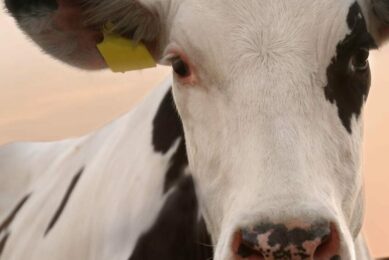
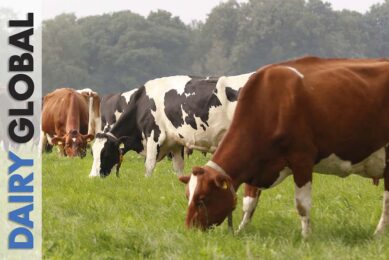
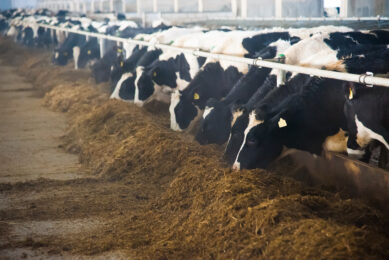
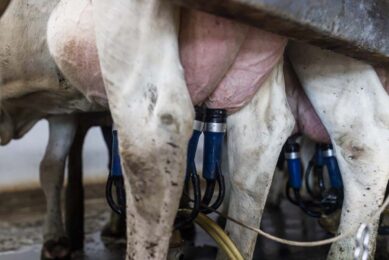
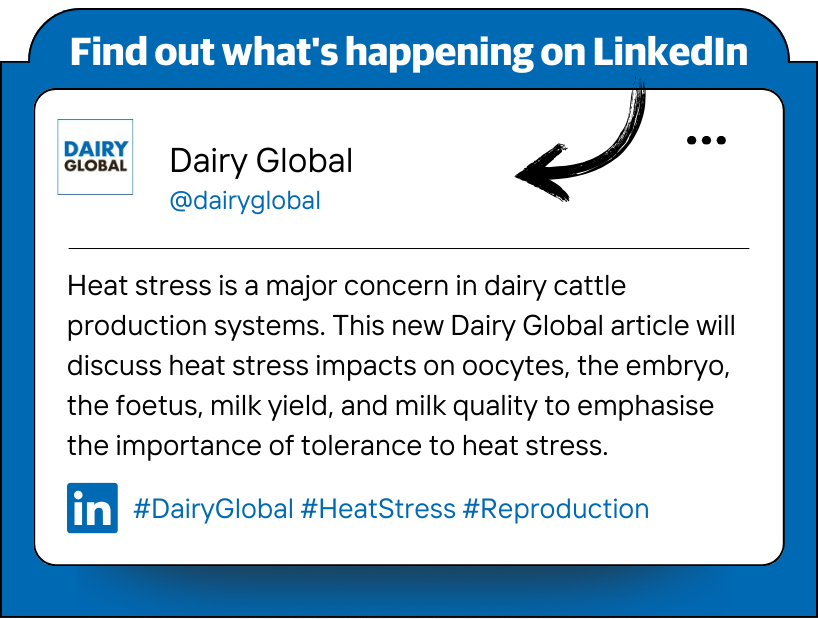



 WP Admin
WP Admin  Bewerk bericht
Bewerk bericht